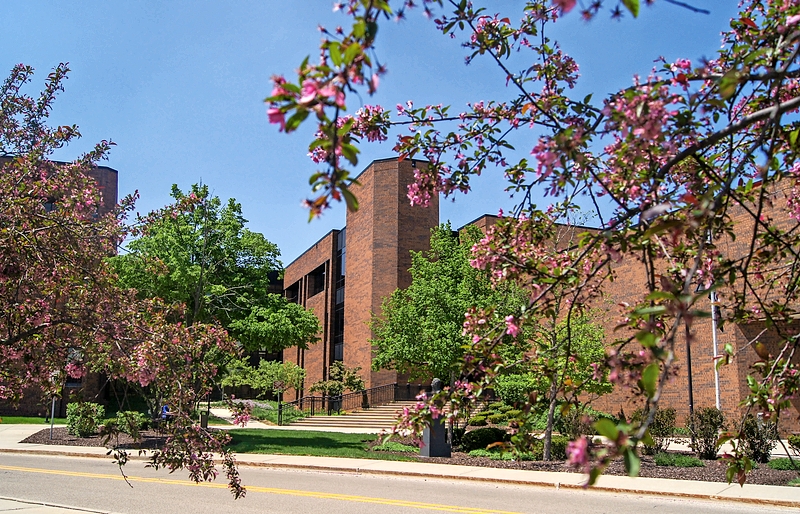Civic Serenity
By Kelli Anderson
August 2018 View more 630

For those in search of a peaceful nature walk—a stroll through native woodlands or an oak savannah—the newly accredited DuPage County Campus Arboretum in Wheaton offers a new, and slightly unusual, option.
The sprawling site is home to administration, transportation, judicial and health services for the nearly one million residents of DuPage County. Interspersed among the 19 buildings and county fairgrounds are landscaping and plantings installed at various times during the development of the campus.
Over the past five years, the county has worked to restore and enhance the quality of vegetation on the campus, and four months ago, DuPage County earned a Level 1 arboretum accreditation for achieving certain arboreta and botanic standards (see sidebar).
The county’s arboretum status was achieved through a collective effort with The Morton Arboretum and a vision to beautify, restore and enhance the 202-acre DuPage County property. The campus is now home to over 2,800 trees, mini-ecosystems, trails and gardens along neighboring Winfield Creek.
It all started with a simple plan: “A few years ago, Chairman Dan Cronin and I set a goal of improving the look and livability of the county campus over the next decade,” explains Jim Healy, chairman of the DuPage County Board’s Public Works Committee. But it wasn’t until the two men attended the 2017 DuPage Environmental Summit that they realized attaining arboretum status was the perfect solution. Talks on the summit’s theme, “Nature RX: How Spending Time in Nature is Good for Our Mind, Body and Soul,” by health and environmental professionals cited new studies that support nature’s benefits to the human spirit.
“We have put in a lot of work to create areas where employees and the public might enjoy walking and being outside,” Healy says. Expertly designed walking trails enable explorers to enjoy wetlands, native woodlands and prairie in a single experience. “By combining those features with plantings that create mini-ecosystems and plant communities, we have a pretty unique campus feel and look.”
One example Healy cites is the trail from the campus’ Winfield train station: It takes visitors through a restored wetland and across a mixed hardwood floodplain to the Family Center, which features an eco-friendly green roof, native gardens and a pond. The trail then crosses over County Farm Road to the east side of campus, where visitors can experience an oak savanna—a common sight one hundred years ago, but the species is
now an endangered part of our Midwestern landscape.
“We took great strides to incorporate species that are native to our region because they bring so many benefits, including reduction in stormwater runoff and energy conservation,” Healy says. “Our campus gives visitors an opportunity to see how native species can be used in a landscaped setting.”
Tree Degree
*Sidebar in print
In April 2011, The Morton Arboretum launched ArbNet and arbnet.org, an interactive community of arboreta designed to support public gardens. ArbNet’s four levels of accreditation recognize arboreta at various degrees of development, capacity and professionalism. There are currently four certified arboretums in the western suburbs: DuPage County, Lewis University, Elmhurst College and The Morton Arboretum.
LEVEL I
Level I arboreta are generally smaller publicly accessible sites with at least 25 species of woody plants, one or a few employees or volunteers, a governing body and an arboretum plan.
DuPage County Campus Arboretum, dupagecounty.org
Lewis University, lewisu.edu
LEVEL II
Level II arboreta have at least 100 species of woody plants, employ paid staff, offer public education programs and a documented collections policy.
Elmhurst College Arboretum, public.elmhurst.edu/collections/arboretum
LEVEL III
Level III arboreta have at least 500 species of woody plants, employ a collections curator, have substantial educational programming, collaborate with other arboreta, publicize their collections and actively participate in tree science and conservation.
LEVEL IV
At the highest level of accreditation, Level IV arboreta employ well-qualified tree scientists engaged in publishing sophisticated research, manage living tree collections for the purpose of conservation and take an active role in supporting tree conservation.
The Morton Arboretum, mortonarboretum.org


